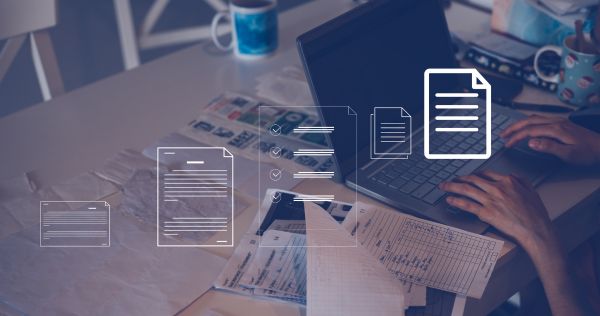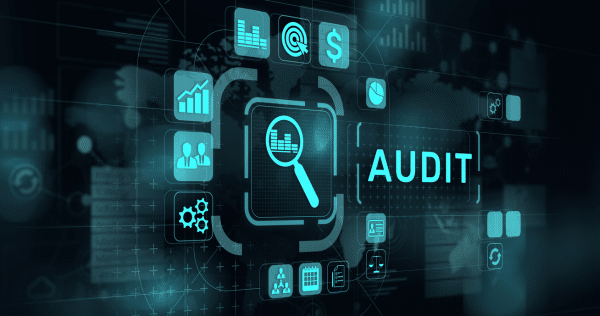With e-commerce at all-time highs and growing, traditional freight invoicing processes that rely on in-house, manual labor doesn’t cut it when it comes to speed and efficiency. Companies that cannot meet a customer’s expectations and optimize their business performance will be left in the dust.
To account for the heavy market competition, Third-Party Logistics (3PLs) and Freight Brokers are increasingly outsourcing freight audits to sophisticated technology.
Challenges of Freight Invoicing
Paying—or getting paid—can be a logistical nightmare. Companies come to dread invoicing because it is complex, time-consuming, and ripe for error.
Why is invoicing so challenging?
- Sheer volume of transactions & paperwork
- Highly-detailed invoices
- Approvals, negotiations, and resolutions cause delay
- Complex rates & fees
- Error costly at a rate of 5-8%
How Freight Audit Software Helps Companies
Freight audit software is a tool to help businesses streamline and automate the process of managing freight invoices and payments—essentially any charges and fees associated with transportation services. Auditors use technology to perform automated tasks and collect, store, and analyze data.
Not only are they offering immediate short-term solutions to your invoicing headache, but they’re doing so with fewer errors all while maintaining a goldmine database for analytics you can use to evolve your business.
Across their functions, freight bill auditors can recover between 1-5% of transportation costs. Their error resolution capabilities cut labor costs of fixing problems down by 5-10%.
As a 3PL or freight broker, you must choose an audit software that fits your needs and offers the most comprehensive services for the cost investment.
Consider these 5 factors that 3PLs and Freight Brokers Should Consider when Choosing Freight Audit and Invoicing Software.
- Range, Flexibility, & Comprehensiveness of Services
Comprehensiveness
The software you choose should, at minimum, cover what your audit and invoicing needs are. Do an internal assessment of what functions you need to be outsourced, and compare that against your options.
Keep an eye out for software that covers key functions of freight brokers, like:
- Document preparation
- Carrier communications
- Invoice validation & Discrepancy detection
- Contract & regulation compliance
- Exceptions management/dispute resolution
- Rate negotiations, customer service
- Payment processing, reconciling, tracking
Range
Assess the software’s range, such as how many modes of transportation it can work with. Do they have an extensive network of carrier partners?
Think about to what extent it can accommodate the geographic realities of your company—regional, national, and international.
If you’re shipping internationally, you face extra complexity via cross-border customs and regulations. These range from completing import/export paperwork and ensuring compliance to understanding Value-Added Taxes (VAT)/Goods and Services Taxes (GST). Look for software with these capabilities.
Flexibility & Scalability
Companies inevitably change, whether by choice or industry fluctuations (demand, season, requirements). Adaptability is a competitive advantage. As you scale, check to make sure the software you choose can handle increases in invoice volume and any company expansion.
- Integration capabilities
Freight is an ecosystem; your software should pull everything together. Good 3PL freight technology can manage multi-channel logistics, covering both B2B and B2C operations. Ideally, you want end-to-end service support that seamlessly integrates into your e-commerce platforms and works with your existing infrastructure.
There are a variety of Transportation Management Systems (TMS) and Enterprise Resource Planning (ERP) Systems; confirm that the software you select is compatible with yours. Explore the degree of workflow customizability.
- Value-Add Capabilities
The best 3PL freight brokers pair seamless integration with cutting-edge technology like automation (such as Robot Process Automation (RPA), AI analytics, and machine learning.
Any software innovation that helps you will help your customers, putting you above competitors in the market. Software, for example, may be able to do:
- Inventory integration.
- Real-time stock levels, reordering
- Automated fulfillment technology
- Shipping integration
- Automatically start and track orders
- Ensure compliance with regulations, standards, protocols
- Freight integration
- Automated error/duplicate checking. Automatically initiates dispute resolution process including carrier communications
- Automated invoice matching
- Real-time and Historical Analytics
In the freight business, data is your secret weapon.
Integrated freight software gives you real-time data and in turn maximum visibility.
Examples of real-time data:
- Livestock tracking
- Live fleet location, delivery status
When paired with automation, that data creates even more process efficiency.
Examples of automation:
- Approvals/re-routes of correct/incorrect invoices
- Customer support responses
- Completion of customs documents, freight invoices
The most advanced freight management software performs analysis, offering invaluable reports that can inform your business decision-making.
Examples of Analytics:
- Inventory demand: units sold per product, historical stock levels, time to delivery
- Benchmarking: freight lane information, competitor performance
- Supply chain: Identify bottlenecks, inefficiencies, opportunities
- Customer support performance: Feedback, time to resolutions
- Year-end reporting
- Expenses: Recovered costs, budget analysis
- User Experience
Freight management is no different from any other company: user experience matters.
Remember that the best software works with, not against you. Ask for a demo. Is it intuitive to use? Is it speedy or glitchy? How long will it take to implement?
Look for a program that offers IT and training services. Are they willing to help you implement it? Your ideal provider staffs full-time experts who can handle all transportation modes and operations.
Your partner should embrace transparent communication and collaboration. What channels do you have to communicate with them? Is there dedicated support? How often do you get updates?
You’re not the only business looking for audit software. Seek reviews or references, and consider industry reputation.
You’ll be trusting the software with highly sensitive data. It should have robust security and protection measures including encryption, controlled access, and compliance with all industry data protection regulations/standards.
The final tier of user experience is cost-effectiveness. Is this, overall, worth (or not worth) the investment you are making? This may not mean simply going with the least expensive option. Explore the software’s pricing structure, licensing fees, and value add/extra charges. Compare that against your current overheads, labor costs, and needs.
Weigh your options.
Thinking about these 5 factors for considering freight auditing software should help you make the most informed decision for your business.
Have questions? Want to talk through your needs? Contact Freight Optics. We have experts who can break it down for you and advocate for the best deal possible.




